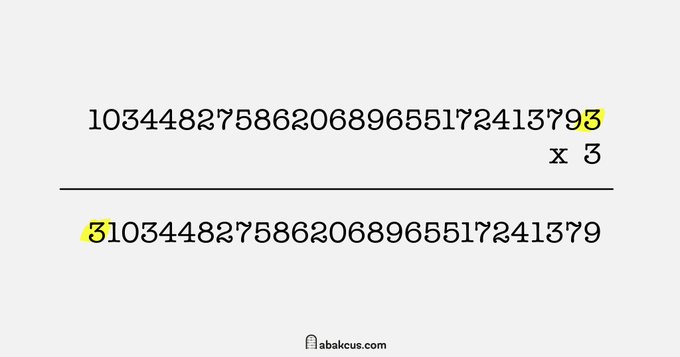If you need to multiply 1034482758620689655172413793 by 3, all you need to do is bring the last digit to the front. 😎
33
152
1K
Replies
@abakcus
Good to know, as soon as someone asks me to multiply that number that’l come in handy. :)
1
0
20
@abakcus
Also, you can multiply by 9 by simply moving the last two digits (the 93) to the front, to get
93103448... .
You can multiply by 4 by moving the last 7 digits to the front, to get
413793103448... .
Any one digit multiple of this number comes from such a rearrangement.
1
0
10
@abakcus
Definitely.
The digit before the last digit is "zero", consequently, whatever the carryout it is not going to affect 3x1
0
0
0
@abakcus
105,263,157,894,736,842 times 2 has the same effect.
105,263,157,894,736,842 * 2 =
210,526,315,789,473,684
0
0
0
@abakcus
3n=3·10^k+(n-3)/10⇒n=(30·10^k-3)/29
30·10^k-3≡0(mod 29)⇔10^k-3≡0(mod 29)⇔10^k≡3 (mod 29)
As 29 is prime, 10^28≡1(mod 29) and 10^27≡3(mod 29) (∵ 3·10≡1(mod 29))
∴ k=28m+27
n=(30·10^(28m+27))-3)/29
m=0⇒n=1034482758620689655172413793
For other m, n is m copies of that
0
2
3





















